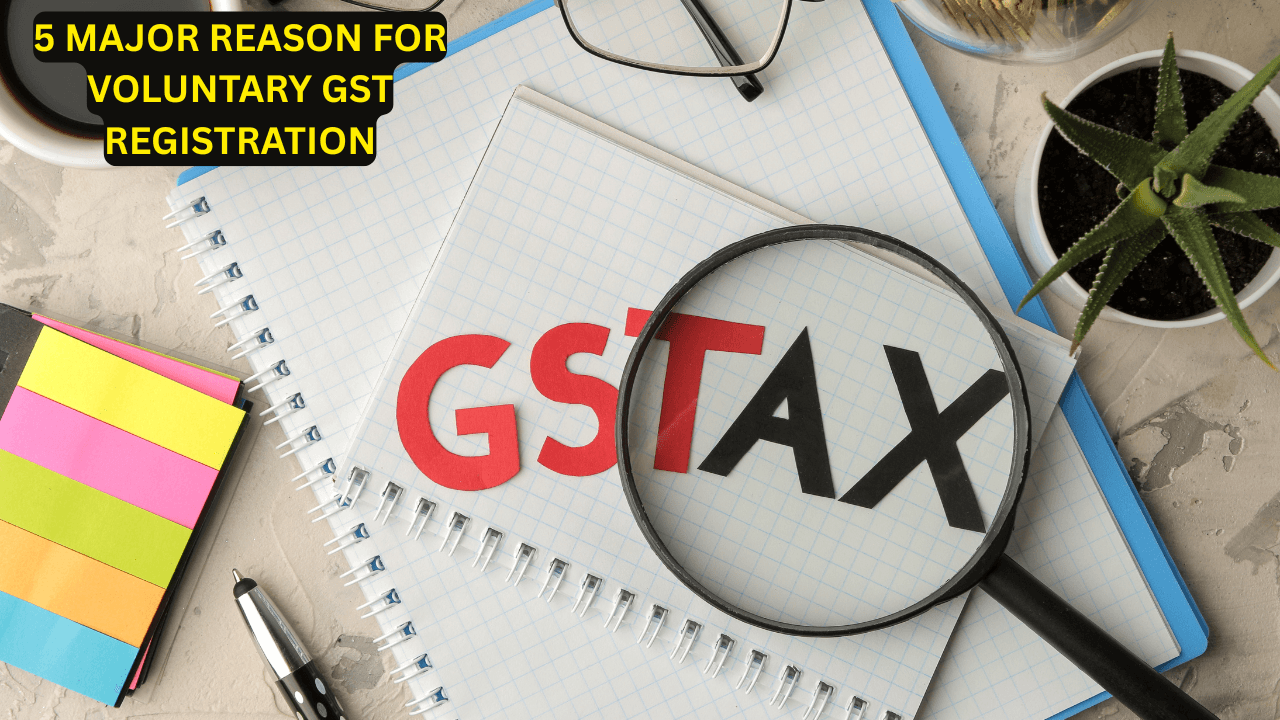GST Registration: Who Needs It and Why It Matters for Every Business Owner
A Short Story: Ramesh’s Online Clothing Store
Ramesh, a young entrepreneur from Jaipur, started selling customized T-shirts online through Instagram and WhatsApp. He got a few big orders from outside Rajasthan and was thrilled with the response. One day, a corporate client asked for a proper GST invoice. Ramesh had no idea what that meant. He thought GST was only for big companies.
Confused, he asked a friend who runs a digital marketing agency. That friend simply said, “If you’re doing business and crossing limits or selling outside your state, you need GST registration.”
Ramesh realized that ignoring GST compliance could cost him clients, penalties, and even credibility. Let’s make sure you don’t make the same mistake.
✅ What Is GST Registration?
GST registration is a legal process where a business registers itself under the Goods and Services Tax (GST) system. Once registered, the business gets a GSTIN (GST Identification Number) and is legally allowed to:
- Collect GST from customers
- File GST returns
- Claim input tax credit (ITC)
- Issue tax invoices
But the big question is — Who actually needs to register for GST?
📌 Who Must Register for GST Mandatorily?
1. Businesses Crossing the Turnover Threshold
You must register for GST if your annual turnover exceeds:
- ₹40 lakhs for goods (₹20 lakhs for special category states)
- ₹20 lakhs for services (₹10 lakhs for special category states)
So, if your business sells physical products and crosses ₹40 lakh turnover in a year, you need to register.
🧾 Example: If you’re selling furniture and crossed ₹42 lakh in sales in a financial year — GST registration is mandatory.
2. Interstate Supply (Selling Outside Your State)
Even if your turnover is below ₹40 lakh, if you supply goods or services outside your state, GST registration becomes mandatory.
🧾 Example: Ramesh in Jaipur selling T-shirts to a buyer in Delhi — must register for GST even if his turnover is ₹5 lakh.
3. E-commerce Sellers
If you sell through platforms like Amazon, Flipkart, Meesho, etc., GST registration is compulsory from day one — no matter how small your turnover is.
4. Casual Taxable Persons
Businesses or individuals who occasionally supply goods or services in events, exhibitions, or other states — must also get temporary GST registration.
5. NRI Taxable Persons
Non-resident Indians supplying goods or services in India also need to register under GST.
6. Reverse Charge Mechanism (RCM)
If you’re liable to pay tax under RCM (for example, when purchasing services from unregistered dealers), GST registration becomes necessary.
🤔 What If You Register Voluntarily?
Even if you’re not required to register based on the rules above, you can apply for voluntary registration.
👉 Benefits of Voluntary GST Registration:
- Gain trust with clients and suppliers
- Expand your business PAN India
- Claim input tax credit (ITC)
- Easily participate in tenders and large orders
- Avoid legal trouble
⚠️ What If You Collect GST Without Registration?
This is illegal and punishable. As per the GST law:
- Penalty is ₹10,000 or 100% of the tax amount, whichever is higher
- May lead to legal notices or cancellation of business license
- No ITC benefit can be claimed
- Bad business reputation
📝 Documents Required for GST Registration
Here’s what you’ll typically need:
- PAN card of the business owner
- Aadhaar card
- Proof of business address
- Bank account details
- Passport-size photo
- Business registration certificate (for firms, LLPs, companies)
📋 Steps to Apply for GST Registration
- Visit gst.gov.in
- Click on “New Registration”
- Fill basic details and verify OTP
- Submit required documents
- Receive ARN and track application status
- Get GSTIN once approved
If you’re unsure, you can always take the help of a professional like Taxgyany.
🧠 Conclusion: Don’t Wait Till It’s Too Late
GST registration is more than just a compliance formality — it’s a doorway to building a legitimate and scalable business in India.
Whether you’re:
- A small trader
- A freelancer
- A service provider
- Or an online seller
If you meet the criteria, registering for GST is not optional — it’s essential.
🌟 Moral of the Story
Like Ramesh, don’t wait for a client to point out your GST issue. Be proactive, understand your eligibility, and register on time. A small step today can save you penalties and grow your business tomorrow.
Need help registering for GST?
Contact the experts at TAXGYANY
🌐 www.taxgyany.com
📞 730 430 7888
#GSTRegistration #WhoNeedsGST #GSTIndia #GSTCompliance #NewBusinessGuide #Taxgyany #EcommerceSellerGST #OnlineSellerTax #BusinessStartupIndia #RegisterForGST #GSTHelp #TaxTipsIndia


